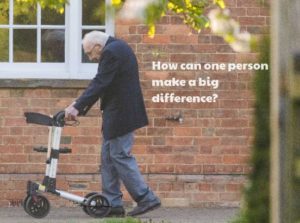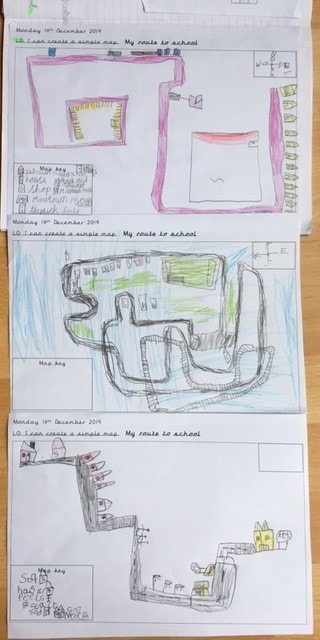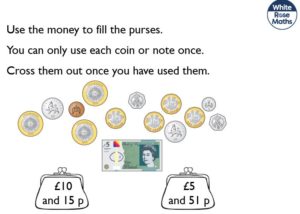01 May 2020: Home Learning
Hi all,
I can’t believe it’s the end of another week. Well done! I hope it’s been a good one for you. Fingers crossed for better weather next week.
Here are the answers from yesterday’s learning:
Y4 – Maths – shape – Lesson 4 – ANSWERS
5. Geography ANSWERS compass points
Today’s learning:
As always, Friday’s are our Love of Reading session. Sit down and enjoy a good book. Read with an adult, discuss what you’re reading. Discuss what your adult is reading.
Maths is a break from the lessons today and a nod towards the really good resources on BBC Daily Lessons. Each Friday, they post some challenges. Choose from the activities and have a go at them by clicking here.
Our third lesson is a music lesson. Again, it’s on the BBC Daily Lessons site. There’s some reading, a video and some activities all around pulse and rhythm. I found this tricky! Pulse and rhythm are two musical elements – there are many more: pitch, dynamics, timbre, etc (see the age-related expectations on the school website for more information). Click here for the link to the lesson.
01 May: Home learning
It’s Friday, the first day of May and the last learning day of the week.
Today, why not combine your physical activity with your mindfulness activity by doing one of the Cosmic Yoga sessions.
Here are your new learning tasks for today.
Task 1 reading
Firstly, here are the answers to the Captain Tom questions from yesterday.
Today’s learning
We’ll start today’s learning with the spelling test. Here’s a reminder of this week’s words. What was the spelling rule? Yes – drop the y for an i. This week, I have recorded the test so get your pencil and paper ready. Click here when you are ready. Remember your neatest handwriting. You could warm up by drawing lazy eight shapes around your eyes, on your hand or on your adult’s back.

For our reading task today, it’s back to the Venus flytrap fluency text to check your understanding.

1.Reread the fluency text – hopefully this time you will be a bit more fluent. Remember to pause at the punctuation like in my reading.
2. Complete the activity here.
Task 2 maths
It’s times table test day and it would be good to start to include some division questions in the test if your child is ready for that. Start the division questions based on the ten times table first of all such as 100 shared by 10, 20 divided by 10.
Today’s learning
The lesson today is all about measuring longer lengths and heights using metres. This follows on from yesterday’s learning (White Rose home learning – Summer Term Week 1 lesson 3) so if you didn’t complete it yesterday, do that lesson first.
1.Start your maths learning by joining in with this length and height Super Movers song.
2. Complete the White Rose lesson and activity sheet – Summer Term Week 1 lesson 4 and check your answers.
Challenge: At the moment, if you do have to go out, the current social distancing recommendation is two metres. Can you measure this out? If you can, what does it compare to in your house? This video gives some suggestions.
Task 3: RE – Ramadan
Our final task of the week is an RE task. Some of our friends in school are one week into the month of Ramadan but what is Ramadan?
1. Look at the information and watch the videos on this Newsround page.
2.What did you learn about Ramadan?
3.What surprised you about Ramadan?
4.Why is Ramadan different this year?
5. Finally, think of a question you would like to ask someone taking part in Ramadan.
If you are taking part in Ramadan at home at the moment, we would love to hear what this involves for you and your family.
Optional extra activity
Finally, we know we’ve got some budding artists in the class so why not try a draw along session led by children’s illustrator, Rob Biddulph.
Have a great weekend – stay safe and stay connected! We’ll be back on Monday.
01 May 2020: Home learning
Hello Year 1!
Here is today’s learning…
Maths
Reading
Art
Today I would like you to get creative. Draw a circle on a piece of paper. Then turn that circle into a picture. Here are some examples. You could take it in turns to complete a circle picture with someone in your house. I would love to see what designs you come up with.

Have a great weekend, Year One!
30 April 2020: Home Learning
Hi everyone!
Here are the answers from yesterday’s learning:
Y4 – Maths – Shape – Lesson 3 – ANSWERS
Here’s today’s learning:
Click here for the maths lesson.
30 April 2020: Home learning
Hello everyone!
It was great to hear that lots of you enjoyed watching the videos. I hope you got on well with the learning!
Thanks to those who continue to send photos. Keep an eye out on the Class News page tomorrow for some of the learning you’ve been doing.
Now, onto today’s tasks.
Maths
Counting in 2s, 5s and 10s video
Counting in 2s, 5s and 10s sheet
Reading
Living and Learning
Follow this link to the ‘News’ page of the school website. Once you’re there, scroll down to find the Living and Learning activity.
Enjoy watching the story and thinking of ways to be kind to yourself. Let me know your ideas!
30 April: Home learning
Hope everyone is ok and staying safe at home. Don’t forget to have a look at the class news page to see some of the learning and photos we’ve been sent.
Here are some ideas for a daily physical and mindfulness activity for you to try.
Physical activity: The Davies Sports 60 Second Personal Challenge is a weekly challenge you can set yourself to help improve your fitness. These challenges only take 60 seconds to complete and require little-to-no equipment. Each day of the week complete the challenge, note down how many you can do and try to beat your score the next day. At the end of the week, track your scores to see how well you have done.
Mindfulness activity: Why not turn your daily walk in a mindful walk focusing on all your senses to notice as many new things as possible – sounds, patterns, colours, textures.
Here are your new learning tasks for today.
Task 1 reading
Firstly, here are the answers to the questions from yesterday.
2. What is the title of the song? The Funny Tummy Song
3. How many verses are there in the song? three
4.Find and copy a word that means a.unsure worried b.on your own alone c.upset sad
5.Find two sets of rhyming words from the song. alone and phone, uh-oh and know, dad and sad, must and trust, OK and away
6.Which part of the song is repeated? ‘They’ll help to make it go away’ is repeated twice at the end of the song and ‘If it makes you feel funny in your tummy’ is repeated at the start of verse two and verse three.
Today’s learning
Today, 30th April, is somebody’s very special birthday who you may have heard about in the news. Captain Tom Moore is 100 years old.

1.Read the First News article of his amazing fundraising achievement (story number 3 – Moore and more and more money raised!).
2.Answer the questions (that follow the text).
Challenge: This story is just one of the many positive stories about how people can make a difference at this time. Can you think of any other examples? For example, a friend of mine has made 1,300 plastic visors to give to hospitals and care homes.
Task 2 maths
Yesterday’s challenge answer is below.
Tomorrow will be your times table test so spend sometime, if possible, on Times Tables Rock Stars today.
Today’s learning
We’re beginning some new learning about measuring length and height starting with using cm. These are the objectives, related to measurement, that the children should be aiming to achieve by the end of Year 2.
- choose and use appropriate standard units to estimate and measure length/height in any direction (m/cm); mass (kg/g);
temperature (°C); capacity (litres/ml) to the nearest appropriate unit, using rulers, scales, thermometers and measuring vessels - compare and order lengths, mass, volume/capacity and record the results using >, < and =
1.Start your maths learning by playing this Topmarks measuring in cm game.
2. Complete the White Rose lesson and activity sheet – Summer Term Week 1 lesson 3 and check your answers.
Challenge: Find some objects at home that are < 10cm and > 10cm. How can you check?
Task 3: Geography
Today, we are going to recap some learning from our earlier geography topic, Where in the world am I?
I can devise a simple map, using and constructing basic symbols in a key.
1. Draw a map of your local area, maybe this could show the route of a walk you’ve been on while you have been at home. Think about the main features you want to show on your map. This might include landmarks such as trees, a park, shops, roads, a church or traffic lights. If you can’t go out walking at the moment, maybe your map could be of school or around your house?
2.It is hard to put lots of information on maps that can easily be read. Therefore maps often have symbols to show important features. The map would have a key to help you read it showing what your symbols mean. Include a key on your map. Here’s some example maps from our learning earlier in the year.

3. Finally, give your map a title.
Challenge: Can you remember the four points of the compass from our previous learning (and a rhyme to help to remember them)? Have a go at one of these compass direction challenges.
Optional extra activity
Finally, we’ve seen how many of you are doing some cooking and baking while you are at home so todays’ alternative activity is to practise one of the cutting skills we learn at school, the bridge hold. Watch this video to remind yourself and then demonstrate this method to an adult at home.
30 April 2020: Home learning
Answers to Wednesday’s home learning.
Y5 Maths answers
- 35,441
- £1,798 left over
- 663 x 80 = 53,040
Y6 Maths answers
Today’s learning:
Y5 Maths – LO: area and perimeter
I hope yesterday’s video was OK! Moving forward, there will be more videos and I’m sure they will become more streamline during this time!
Today’s learning is about area and perimeter. We did some work on this last week but please do let me know if you have any questions!
Click here for today’s learning.
Y5&Y6 Reading – LO: poetry
Your learning today is poetry. Use this link (https://www.bbc.co.uk/bitesize/articles/zn8bgwx) to access the BBC Bitesize reading lesson (dated April 24). For your main learning, complete activities 1 and 2.
Challenge: complete activity 3 from the Bitesize lesson.
Y5&Y6 Geography –LO: I know some European countries and their capital cities.
Today’s task is a quiz! Click here to have a go. Have more than one go, can you beat your first score? How many can you get by the end of the day?
Your task is to learn 6 countries and their capital cities in Europe.
These countries must be outside of the UK – so you can’t have England (London), Scotland (Edinburgh), Wales (Cardiff) or Northern Ireland (Belfast).
If you come across a country that you don’t know the capital for, then have a look online, in an atlas or ask someone in your home!
Good luck!
Chapter Twelve Part 1
29 April 2020: Home learning
Answers to Tuesday’s home learning.
Y5 Maths – Answers
Click here.
Y5&Y6 Science – Answers
Click here.
Y5&Y6 Reading – Answers
Click here.
Today’s learning:
Y5 Maths – LO: problem solving
Click here for today’s learning.
It’s a video using some new software – let me know your thoughts and if you have any comments, please email me!
Y5&Y6 Geography – LO: I know how some physical and human features in the UK have changed over time.
This term’s topic is a geography one – so expect to see more geography home learning! At the moment, we are recapping our previous geography topic ‘Where in the World Am I?’ before moving into our new topic ‘Explorers’.
Today’s task involves looking at how some physical and human features in Moortown have changed over time.
The questions within the task are to be answered in your home learning book. You may either think to yourself about the questions, talk to someone in your home about them or conduct some research of your own!
Find your task here.
Go to BBC Sport or other similar website – it can be anything you’re interested in. Your challenge is to summarise a web article of your choice in 20, 10 and 5 words. Send them in and we’ll include the best in #HoHLF!
—
If you need any help, please, as always, drop me a line: oliwain@spherefederation.org
29 April: Home learning
Hello everyone – it’s already the middle of the week. Hope you managed ok with yesterday’s learning.
Firstly, we wanted to share a query that was sent to us from a parent about writing. What if your child is engaging with the tasks but is reluctant to record the answers or the discussion that you have together? Some ideas for this might include:
- alternate the written recording between you and your child (if you have the available time)
- let them type out their responses using a computer (if available)
- keep some of the tasks as discussions and don’t record the answers
- encourage some written recording to send to us (carolinetaylor@spherefederation.org and jackiefreeman@spherefederation.org)
We hope this helps and please do get in touch if needed.
Here are your suggested daily physical and mindfulness activities for you to try.
Physical activity: Today, we wanted to remind you of the short videos available on #ThisisPE. Produced by Yorkshire Sport Foundation these activities are designed to support parents and carers to teach some PE at home.
Mindfulness activity: This week, our Living and Learning statement is, I recognise mental health is important. Listen to the reading of the Kindness book and consider the importance of being kind to each other. How can being kind help your mental health and the mental health of others around you?
Here are your new learning tasks for today.
Task 1 reading
1.Read The Funny Tummy Song below (linked to task 3 Staying safe online)

2. What is the title of the song?
3. How many verses are there in the song?
4.Find and copy a word that means
a.unsure
b.on your own
c.upset
5.Find two sets of rhyming words from the song.
6.Which part of the song is repeated?
Challenge: You will hear the song as part of task 3. When you’ve heard the song, how does it sound different when it is sung compared to reading it?
Task 2 maths
Yesterday’s challenge answer is below.

We are going to have a break from learning about fractions. If you would like to continue this learning at home, please carry on the White Rose lessons. We will start new maths learning, all about measuring length, on Thursday.
Today, we will revise learning about money. These are the objectives, related to money, that the children should be aiming to achieve by the end of Year 2.
- recognise and use symbols for pounds (£) and pence (p); combine amounts to make a particular value
- find different combinations of coins that equal the same amounts of money
- solve simple problems in a practical context involving addition and subtraction of money of the same unit, including giving change
Start your maths learning by playing this Topmarks coins game.
1. Complete this BBC Bitesize lesson about recognising coins.
2.Use any available coins/notes at home to support this learning.
Challenge:

Task 3: Staying safe online
Think back to The Funny Tummy song from task 1.
1. Complete Activity 1 and 2 based on Jessie and Friends, Episode 2 from the Thinkuknow website.
Sharing Pictures
Here we meet Mo and Tia, who together with Jessie complete the friendship trio. At Tia’s birthday party they use Tia’s older brother Kyle’s mobile to take fun photos of themselves. The trio agree to send their photos to Tia’s nan but also a few other people whose numbers are saved in Kyle’s phone. When the photos are shared with other children at their school without their permission, they turn to their teacher for help. The three friends learn about how images can get shared more widely than you first expect, and the importance of consent.
Challenge: What would you do if you were Jessie?
Optional extra activity
Learning sign language is a great skill to have. Here are the actions to match The Funny Tummy Song. Why not give them a go?
